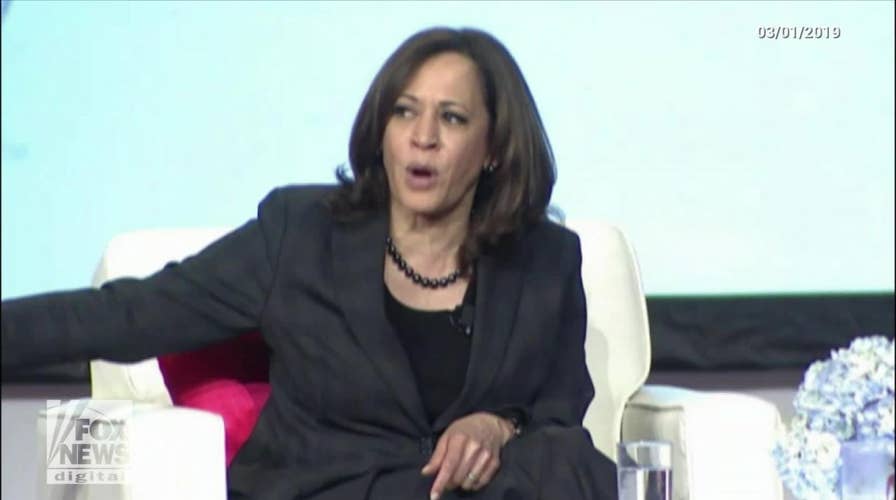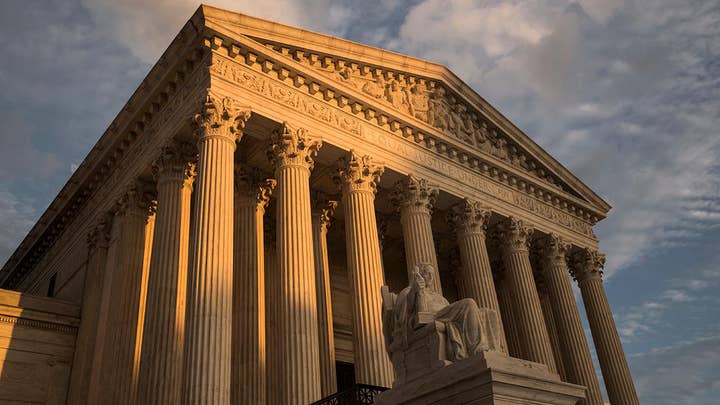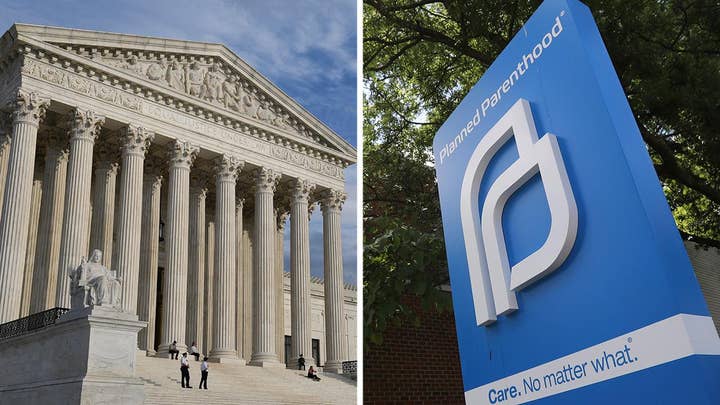2020 presidential candidate Senator Kamala Harris (D-CA): What to know
Senator Kamala Harris announced her bid for the White House on Monday, January 21, Martin Luther King Jr. Day. Here’s what you need to know about her and her positions on major issues.
Sen. Kamala Harris, D-Calif., plans to announce Tuesday evening that if she wins the White House next November she will seek to institute a pre-clearance requirement for states and localities seeking to pass laws barring abortions.
The plan by Harris, a 2020 Democratic presidential candidate, comes amid the renewed debate over abortion rights as states like Alabama, Georgia and Missouri have passed new restrictions. The details were previewed to Fox News by a senior Harris campaign official.
Harris’ pre-clearance requirement would face steep hurdles as the Supreme Court struck down a similar provision of the Voting Rights Act in 2013, effectively freeing states to change election laws without seeking federal approval. The Harris campaign argued, however, that decision doesn't ban pre-clearance measures, leaving it up to Congress to decide how to impose such requirements.
2020 DEMS JUMP INTO ABORTION FRAY AS LEGAL BATTLE HEATS UP
Harris’ planned announcement will also come just hours after the Supreme Court on Tuesday upheld an Indiana law that requires abortion providers to dispose of aborted fetuses in the same way as human remains, a sign that the conservative-leaning court is more open to abortion restrictions.
The Supreme Court justices, however, rejected the state's appeal of a lower court ruling blocking a separate provision that would prevent a woman in Indiana from having an abortion based on gender, race or disability.
Alabama's new law, which was signed by the state’s governor on May 15, made performing an abortion a felony in nearly all cases. Supporters have said they hope to provoke a legal challenge that will eventually force the U.S. Supreme Court to revisit its landmark 1973 Roe v. Wade ruling that legalized abortion nationally.
CLICK HERE TO GET THE FOX NEWS APP
Unlike Alabama's near-total abortion ban, lawmakers who helped draft the recent Missouri bill say it's meant to withstand court challenges instead of spark them. If the eight-week ban is struck down, the bill includes a ladder of less-restrictive time limits at 14, 18 or 20 weeks. Missouri's bill also includes an outright ban on abortions except in cases of medical emergencies, but that would kick in only if Roe v. Wade is overturned. Missouri Right to Life called it "the strongest pro-life bill in Missouri history."
Kentucky , Mississippi, Ohio and Georgia also have approved bans on abortions once fetal cardiac activity can be detected, which can occur in about the sixth week of pregnancy. Some of those laws already have been challenged in court, and similar restrictions in North Dakota and Iowa have been struck down by judges. Nonetheless, the rash of new legislation has left abortion providers in some of those states uncertain about what they can now do.
Fox News' Jennifer Girdon and The Associated Press contributed to this report.






